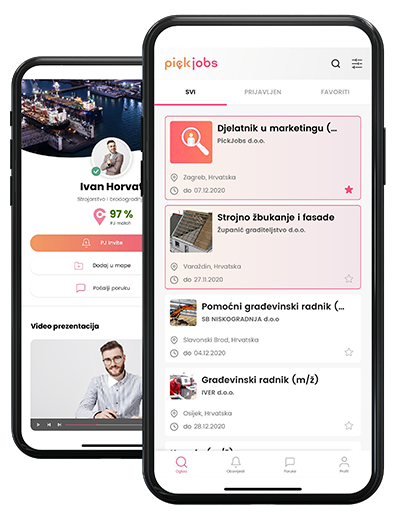In recent years, digital driver's licenses have been increasingly mentioned, particularly in the European Union. What does this mean for Croatia? Are they already available here, will they take off, when can we expect them, and what do they bring – advantages, disadvantages, and the question of whether classic licenses will remain an option?
Are there digital driver's licenses in Croatia?
As of March 2025, digital driver's licenses do not yet exist in practice in Croatia. Croatian drivers still use physical licenses in the form of a card, which have been issued since July 1, 2013, while older, paper ones remain valid until January 2033 at the latest. However, the idea of digital licenses is not new. The European Commission has been working for several years on a proposal to introduce a unified digital driver's license across the EU, and Croatia, as a member state, is part of that process.
The proposal for digital licenses was first seriously presented in 2023 as part of a road safety legislative package. According to that plan, a digital driver's license would be available via mobile devices, such as smartphones, with the option to retain the physical form for those who prefer it. Croatia does not yet have a concrete implementation – for now, it’s just a vision awaiting adjustments to national legislation and technical infrastructure.
Will digital licenses take off, and when can we expect them?
Whether digital driver's licenses will take off in Croatia largely depends on how quickly the EU agrees on a final directive and how Croatia translates it into practice. The European Parliament and Commission are working on adopting the rules, and according to announcements from 2023 and 2024, the goal is for digital licenses to become a reality in the coming years. Some optimistic timelines mention 2026 or 2027 as the point when the first member states, potentially including Croatia, could start introducing them.
Croatia already has some digital infrastructure that could support such a system, such as the e-Građani portal, where requests for issuing physical driver's licenses can be submitted. However, transitioning to a fully digital format will require additional steps: developing an application, security checks, aligning with police systems, and educating citizens. So, while the idea is realistic and will likely take off, it won’t happen overnight. Realistically, we might expect them in Croatia by the end of this decade, perhaps between 2027 and 2030, depending on political will and technological progress.
Advantages of digital driver's licenses
Digital driver's licenses bring a range of advantages that could make life easier for drivers and authorities:
- Convenience: Instead of carrying a physical card, the license would be available on your phone – a device you already have with you at all times. Forgot your wallet? No problem, your phone is enough.
- Faster administration: Replacing, renewing, or issuing a license could be done online, without visiting a counter. This saves time and reduces crowds at police stations.
- EU connectivity: The digital format facilitates recognition of licenses between member states, which is especially useful for those who frequently travel or work abroad.
- Security: The proposed system includes QR codes and other anti-forgery measures, which could reduce misuse.
- Environmental aspect: Fewer plastic cards mean less waste, aligning with the EU’s green goals.
Disadvantages of digital driver's licenses
However, like any new technology, digital licenses have their weaknesses:
- Dependence on technology: If your phone runs out of battery, gets lost, or malfunctions, you’re left without proof of your license. In rural areas with poor signal, verification issues could arise.
- Security risks: Hackers might attempt to access digital data, and losing your phone could compromise your identity.
- Accessibility: Not all drivers are tech-savvy, especially older individuals, which could create difficulties in usage.
- Compatibility: Police systems and other institutions (e.g., car rental companies) need to be equipped to read digital licenses, requiring investments.
- Privacy: There’s concern that digital licenses could enable greater tracking of drivers, especially if data is stored in centralized databases.
Will it be possible to keep regular driver's licenses?
Good news for those not thrilled about the idea of a digital license: according to the European Commission’s proposal, physical driver's licenses won’t disappear. The digital version will be an additional option, not a replacement. This means that, at least initially, you’ll be able to keep the classic card if it suits you better. Adina Valean, the EU Transport Commissioner, stated in 2023 that drivers will be able to choose between digital and physical formats, suggesting a respect for individual choice.
In Croatia, where many still prefer traditional methods, this could be particularly important. Older drivers or those who don’t trust technology will likely opt for the physical license, while younger generations might embrace the digital version. In the long term, however, it’s not ruled out that physical licenses could gradually phase out, though that would be a process spanning decades.
The future is near, but it’s not rushing
Digital driver's licenses in Croatia are not yet a reality, but they’re on the horizon. Their introduction will depend on EU directives and Croatia’s readiness to implement them, which could happen by the late 2020s. Advantages like convenience and faster administration are appealing, but disadvantages such as security risks and dependence on technology shouldn’t be overlooked. Most importantly, it seems drivers will have a choice – at least initially – between digital and physical formats.
What do you think? Would you switch to a digital license, or would you rather keep the good old card in your wallet?

 Croatia
Croatia Bosnia and Herzegovina
Bosnia and Herzegovina Serbia
Serbia Crna Gora
Crna Gora North Macedonia
North Macedonia Ukraine
Ukraine Albania
Albania Kosovo
Kosovo Austria
Austria Deutschland
Deutschland Switzerland
Switzerland









